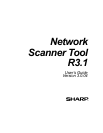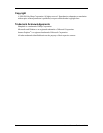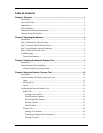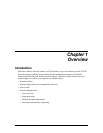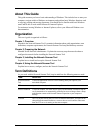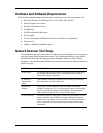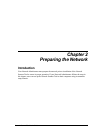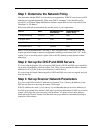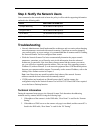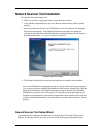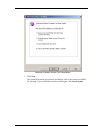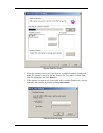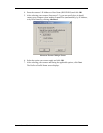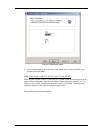
About This Guide
This guide assumes you have a basic understanding of Windows. This includes how to start your
computer, navigate within a Windows environment, and perform basic Windows functions such
as copying, printing and moving documents. You should also be familiar with basic Windows
terms and be able to work within Microsoft’s Internet Explorer.
For assistance in using Windows or Internet Explorer, refer to your Microsoft Windows user
documentation.
Organization
This user’s guide is organized as follows:
Chapter 1, Overview
Introduces the Network Scanner Tool. It contains information about guide organization, term
definitions, computer requirements, the Network Scanner Tool setup and directory structure.
Chapter 2, Preparing the Network
Intended for the Network Administrator. Explains the necessary steps that must be taken to
configure the network before installing the Network Scanner Tool.
Chapter 3, Installing the Network Scanner Tool
Explains how to install and set up the Network Scanner Tool.
Chapter 4, Using the Network Scanner Tool
Explains how to access, configure, and use the Network Scanner Tool.
Term Definitions
As you work with the Network Scanner Tool, keep in mind how the following terms are used:
TERM DEFINITION
N
etwork Scanner
Tool
A software application used for TCP/IP scanning from your copier to your
networked computer.
FTP A protocol commonly used for transferring files over the network.
Process Definition A Network Scanner Tool term used to specify the destination workstation and the
set of commands to be automatically performed on received images from a Sharp
multifunction scanner with Network Scanner Expansion at your computer’s
desktop.
FTP Port The TCP/IP port used by the FTP server to monitor connections. This port can be
changed from the normal default to a custom value to avoid conflicts when more
than one FTP server is running on the same computer.
2 Network Scanner Tool User’s Guide



